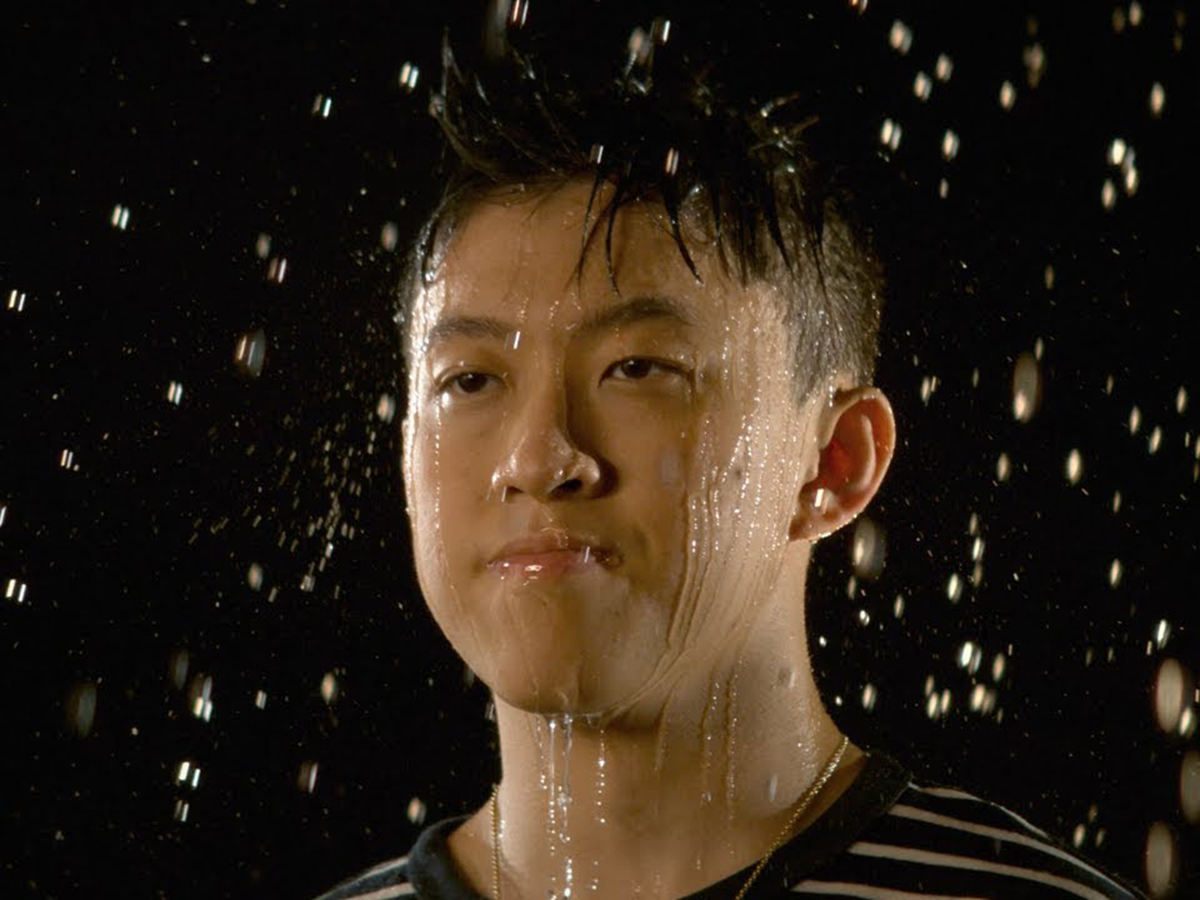
When Rich Brian dropped the cinematic music video for his single “New Tooth” (2021), fans speculated on what was to come from the 21-year-old rapper-producer. The song opens with a menacing piano keys loop, emphasized by trap hi-hats. He effortlessly hops on beat with a cool confidence: “It’s a simple question, do you got it or not?”
On Jan. 20, an orange-haired Brian graced the cover of his four-track extended play “Brightside” (2022) with “New Tooth” as the opening number. Pop culture references to Hermoine from the Harry Potter series and 2000s rapper Bow Wow, among others, are interwoven into the lyrical bars on his first track. Embedded underneath Brian’s rap flow is a familiar west coast synth whistle, largely associated with gangsta funk music of the late-1980s and ‘90s.
What follows is a lyrically repetitive and underwhelming chorus. The high-pitched whistle frequency sonically escorts “New Tooth” into its second half. Revitalizing its pace, the beat-switch features prominent synth and bass. Lush piano chords and pizzicato plucked strings loosely evoking the dominant sound on Tyler, the Creator’s 2017 album “Flower Boy” serve as the song’s outro.
The second track, “Lagoon,” was teased at the end of the “New Tooth” visual. A thumping 808 drum machine introduces the tune as rear view mirror shots capture iconic Downtown Los Angeles structures in the distance of Rich Brian’s two-door luxury car. “It’s a coupe, his name is Lucas” raps Brian, referring to his set of wheels. While he keeps his delivery interesting by manipulating the trajectory of his flows, “Lagoon” is lyrically quite similar to the previous track.
Rich Brian continues to reference pop culture: “If he want smoke, he could get it like Bella Hadid.” He pokes fun at the model for her infamous 2017 interview with Complex. Although this approach gives rise to fond memories of internet banter, it heavily relies on listeners understanding each hyper-specific citation. At the 40-second mark of this song, another beat-switch occurs, accentuating the talents of producer Diamond Pistols. A distinct acoustic guitar and electronically produced chords slow the pace down for the second part of “Lagoon.”
88 Rising labelmate Warren Hue joins Rich Brian on the Powers Pleasant produced “Getcho Mans.” The indisputable rasp in Hue’s voice and his commanding cadence are refreshing additions to the project, both of which blend perfectly to the high-energy track. Rich Brian’s experimental vocal inflections surely pay off. The back and forth between the two rappers makes for an interesting dynamic. Hue pays homage to Indonesia and claims he makes waves like the X-Men superhero, Storm, in his verse. Rich Brian remains true to his name with the line “Just woke up, I’m getting commas.”
While it can seem impressive to some rap listeners to hear an artist continuously rap at the speed Warren Hue and Rich Brian exhibit in this effort, the lyrical content fails to substantiate the flows on “Getcho Mans,” creating a tiresome listening experience. Articulated best by hip-hop heavyweight Nicki Minaj in a 2019 interview, “Rapping fast does not mean you can rap.” It is jarring to hear Warren Hue compare himself to Michael “Jumpman” Jordan and Mariah Carey — established legends in their respective crafts — as he rushes through his verses. His attempt to sound “braggadocious” has the opposite effect and is indicative of an amateur pen lacking the finesse of a veteran act.
In typical Rich Brian fashion, the introspective final track takes form in “Sunny,” a track carried by soft piano keys, prominent live percussion and a subtle bassline. He gives a shout-out to the Philippines based fast-food chain Jollibee and compares battles with his inner demons to the fight sequences in popular Japanese anime. His flow on the bridge directly mirrors a Kendrick Lamar flow on the track “XXX.” (2017).
The concepts on this EP are slightly undercooked, a surprising development in the artist’s evolution since immersing himself into Black American rap culture under the racial slur-stagename “Rich Chigga” with the viral track “Dat $tick” (2016). Just like his name, his sound has progressed, delving into melodic rap and singing over the course of his first three studio albums from “Amen” (2018) to “The Sailor” (2019) and “1999” (2020).
It is worth noting that “Brightside” is not a full-length album and should not be held to the standard of Rich Brian’s catalogue of fully realized projects. There is, however, a full circle moment to the opening line of the project. Is Brian a brand, budgeted with stunning visuals and a flawless rollout, or is he concerned with sustaining his place as a rapper? Does Rich Brian “got it” or not?
Verdict: Crisp production and dated references take center stage on “Brightside” as Rich Brian struggles to diversify his lyrical content beyond basic metaphors and similes. Rather than illuminating listeners with a glimpse into the future of his style and sound, “Brightside” houses recycled flows from his sophomore effort.







